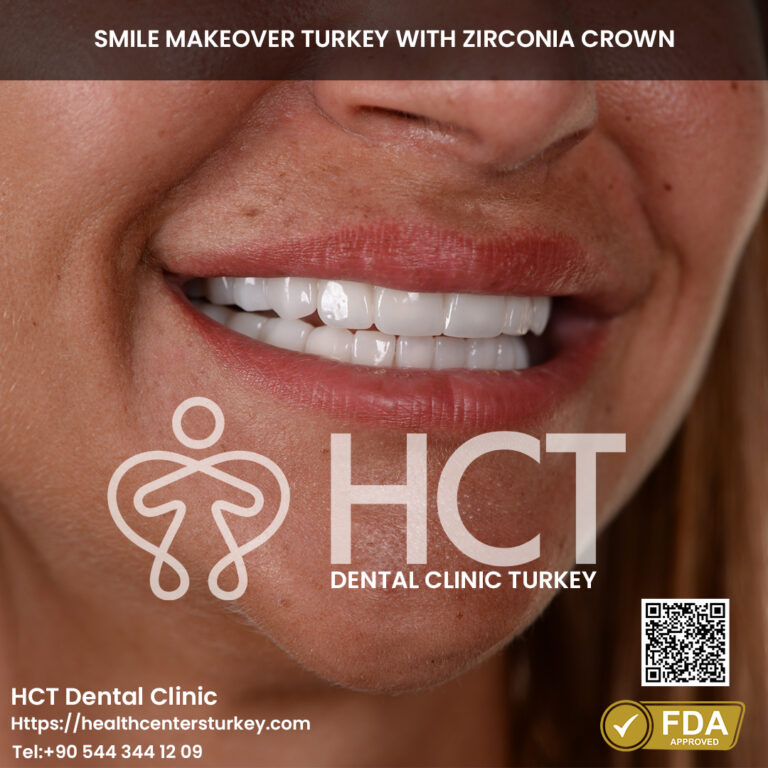High-Quality Cosmetic Dentistry Services Available in Turkey
High-Quality Cosmetic Dentistry Services Available in Turkey
Blog Article
What Makes Turkey Dental Treatments
Dental implants have become a well-liked solution for these seeking to replace missing teeth. Understanding how these implants can affect adjacent teeth is essential for anybody considering this process, as nicely as for dentists and specialists involved in dental care.

One important facet is that dental implants are designed to be anchored into the jawbone, which means they're independent of adjacent teeth. Unlike dental bridges, which regularly require the alteration of neighboring teeth, implants can fill the gap without compromising the health or structure of these surrounding teeth.
This independence helps keep the integrity of adjacent teeth. When a tooth is misplaced, there is normally a natural tendency for neighboring teeth to tilt or shift into the empty space. Such motion can result in misalignment, which can have an result on bite and general oral health. By placing an implant, you successfully prevent this potential shift, promoting higher alignment in the long term.
Investigate Services Available for Dental Implants
Additionally, dental implants assist maintain bone density within the jaw. A natural tooth root provides stimulation to the encircling bone, keeping it wholesome and strong. When a tooth is missing, the bone can start to deteriorate as a result of lack of stimulation. With a dental implant mimicking a natural root, bone loss may be minimized, which indirectly advantages adjacent teeth by preserving the overall structure of the dental arch.
While dental implants are advantageous, improper placement can impression neighboring teeth. If an implant is positioned too close to another tooth, it may exert undue pressure on that tooth, resulting in discomfort or potential damage. Proper planning and imaging techniques are essential for avoiding such issues.
Discover Cost-Effective Dental Services in Turkey
Moreover, sustaining good oral hygiene is crucial after receiving an implant. If not correctly cleaned, surrounding teeth may turn out to be susceptible to dental issues corresponding to decay or gum disease. This underscores the importance of diligent oral care following the procedure to make sure both implants and adjacent teeth remain healthy.
Regular dental check-ups are also very important for monitoring the health of surrounding teeth. Dentists can establish any shifts or potential problems early, allowing for timely interventions. This proactive method ensures that both the implant and adjacent teeth can coexist without issues.
Understanding Current Trends in Dentistry in Turkey
Another consideration is the impression of implants on bite pressure. When a single tooth is missing, the load of chewing might shift to adjacent teeth, doubtlessly leading to wear or pressure. Implants restore proper chew dynamics by redistributing forces within the mouth, which may shield surrounding teeth from undue stress.
Some sufferers could increase concerns about the appearance of dental implants. Well-placed implants can mix seamlessly with present teeth, enhancing general aesthetics. In distinction, failing to switch a missing tooth can result in aesthetic issues, including collapsing of facial structure and modifications in smile dynamics.
It's additionally worth discussing the psychological aspects of dental health. Experiencing tooth loss can adversely have an effect on one’s vanity and willingness to have interaction socially. By restoring your smile with implants, you can positively influence not only your oral health but in addition your emotional well-being.
Long-term success of dental implants usually hinges on varied components, together with the patient's health, maintenance habits, and the quality of the initial procedure. If adjacent teeth are wholesome and correctly cared for, the chances are excessive that they may proceed to thrive alongside the implants.
Optimize Your Oral Health Treatment with Skilled Professionals in Turkey
In conclusion, dental implants play a vital function in not just restoring individual smiles, but in preserving the health and structure of adjacent teeth. By preventing shifting, maintaining bone density, and redistributing chew forces, implants can be positive that surrounding teeth remain in optimal condition. Proper placement, hygiene, and regular dental visits can further enhance the benefits of dental implants, leading to a healthier, more confident smile for years to come.
- Dental implants can help maintain the alignment of adjacent teeth by offering a steady anchor, stopping adjacent teeth from shifting into the hole left by a missing tooth.
- The presence of an implant might stimulate bone progress in the jaw, helping to protect the general structure and integrity of the adjacent teeth.
- Unlike conventional bridges, implants don't require alteration of surrounding teeth, thus preserving their power and anatomy.
- Implants can enhance the distribution of bite forces evenly across the dental arch, lowering the stress on neighboring teeth throughout chewing.
- A well-integrated dental implant can decrease the danger of bone loss in the area surrounding adjacent teeth, contributing to their long-term health and stability.
- The aesthetics of adjacent teeth can be improved as a result of assist offered by implants, which may lead to higher total beauty outcomes.
- With proper placement, dental implants can prevent gum recession around adjacent teeth by sustaining sufficient dental structure.
- Implants may help mitigate the risks of periodontal disease in close by teeth by selling healthy gum tissue and providing a washable floor.
- Long-term success of dental implants can lead to improved oral hygiene routines, which in turn advantages the health of surrounding teeth.
- The improved useful ability of an implant can encourage patients to chew extra successfully, thus growing saliva production and aiding within the safety of adjacent dental tissues.undefinedHow do dental implants have an effect on adjacent teeth?
What are dental implants and how do they work together with adjacent teeth?undefinedDental implants are artificial tooth roots which are surgically positioned into the jawbone. They my website provide a secure basis for replacement teeth whereas ensuring minimal disruption to adjacent teeth, preserving their integrity and alignment. Complete Guide to Dental Implants and Cosmetic Treatments in Turkey.
Price Comparison for Dental Care in Turkey
Can dental implants cause problems for close by natural teeth?undefinedGenerally, dental implants do not harm adjacent natural teeth. However, if the implant is not positioned appropriately or if there’s inadequate oral hygiene, it might lead to issues similar to adjacent tooth decay or gum disease.

Will getting a dental implant change the way my adjacent teeth feel?undefinedMost sufferers report no change in the sensation of adjacent teeth after implant placement. However, it could take a while to regulate to the presence of the implant, just like how one might adapt to other dental restorations.
Can dental implants help protect the health of adjacent teeth?undefinedYes, dental implants may help preserve the health of adjacent teeth by stopping bone loss that may occur after tooth loss. This preservation supports the alignment of close by teeth, lowering the danger of shifting or misalignment.
Everything You Need to Know about Dental Procedures in Turkey
Do I need to change adjacent teeth when getting an implant?undefinedTypically, adjacent teeth don't want alteration when putting an implant. This is among the advantages of dental implants over conventional bridges, which frequently require reshaping adjacent teeth for support.
How does the therapeutic strategy of an implant affect nearby teeth?undefinedThe browse around this site healing course of includes osseointegration, where the implant fuses with the jawbone. During this time, adjacent teeth remain unaffected and retain their operate, though it’s essential to observe post-operative care suggestions. Experience Top-tier Dental Care at Remarkably Low Prices.
Advanced Dental Technologies for All Needs
Can dental implants lead to bone loss around adjacent teeth?undefinedIf dental implants are positioned properly and cared for adequately, they should not result in bone loss around adjacent teeth. In fact, they may help stimulate bone progress, combating the natural bone loss that often follows tooth extraction.
What precautions ought to I take to protect adjacent teeth after getting an implant?undefinedRoutine dental hygiene, including brushing and flossing, together with regular dental check-ups, is essential. Avoiding exhausting meals and following your dentist’s aftercare directions will also defend both the implant and adjacent teeth.
Is it frequent for adjacent teeth to shift after an implant is placed?undefinedIt's not typical for adjacent teeth to shift after an implant placement, especially when the implant is positioned appropriately and maintained properly. If there’s any motion, it may be because of other underlying points that should be evaluated by a dental skilled. Report this page